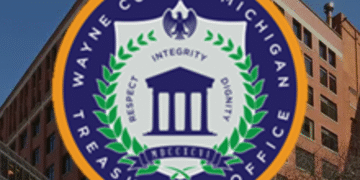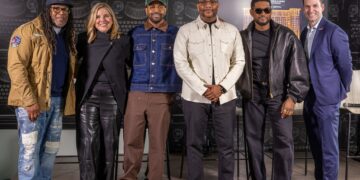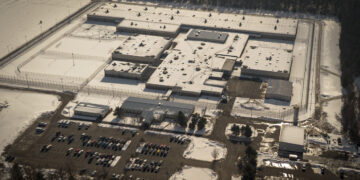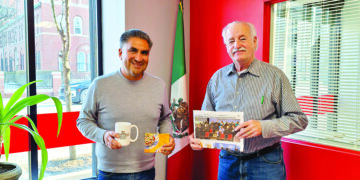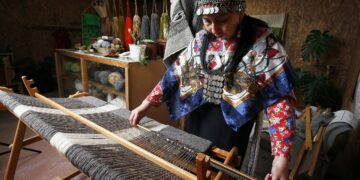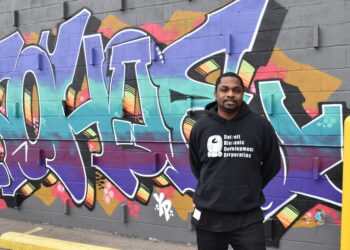David Medina Alvarez speaks with passion and breadth of knowledge about the automotive industry that belies his 25 years of age.
He is the founder of LIVAQ, a company manufacturing electric all terrain vehicles. His first batch of vehicles, which look like an ATV Batman would ride to catch crooks, will be shipped out by this fall.
“Since I was 9 years old, I wanted my own company,” he said while working on a prototype in his workspace at Newlab at Michigan Central Building. “I feel really grateful I am here.”
Newlab is part of the 30-acre mobility innovation center housed on the campus of the Michigan Central Building. Newlab is in the former Detroit Public Schools book depository building.
Renowned architect Albert Kahn designed the structure in the mid-1930s. But a fire in 1987 left the building vacant until 2018 when the Ford Motor Co. bought it as part of the renovations to the Michigan Central Station building and campus. Newlab is a short walk from the station.
With more than 100 startups and nearly $700 million in funding attracted for the projects, creators like Alvarez are in the process of producing their products or shipping them out to customers.
Newlab opened a year ago with 25 entrepreneurs. It has been a quick turnaround for the creators, who often rely on each other for quick advice or tips, as they prepare for the next step in their companies’ growth.
Ann Larson, cofounder of Intermode, started off with the intention of creating mobile robots but now is building chassis for other companies to tailor to their needs. The chassis are leased so they are constantly recycled.
“Everything is recycled,” she said. “We are keeping it in a closed loop.”
Her company is in the process of preparing an order to ship to Texas, where their customer will use the robots to deliver fast food.
These are two examples of local companies that are pushing boundaries. But there are companies from around the world, including one from Norway gaining attention for its creation of a one-wheeled device that can move items via an attached box that can be controlled by a cellular phone.
“There is so much going on here,” Newlab spokesman Dan Austin said. “This is what you build an ecosystem around.”
The efforts are helping to showcase Detroit as a hub of technological innovation. And with so many projects interconnected, it builds a network similar to the one that helped Detroit become known as the automotive capital of the world.
“All the stars are aligning,” Wayne State University’s Christianne Malone, said. “Everyone seems to be synching up. Each one plays a role in what Detroit can be.”
Malone also is chief program officer for Detroit Techtown, which has helped entrepreneurs with funding and advice for 20 years. She said the manufacturing industry in particular has to keep looking at ways to evolve.
“We have a strong manufacturing base that is not going anywhere,” she said. “How we got to where we are is because we have always been innovative.”






